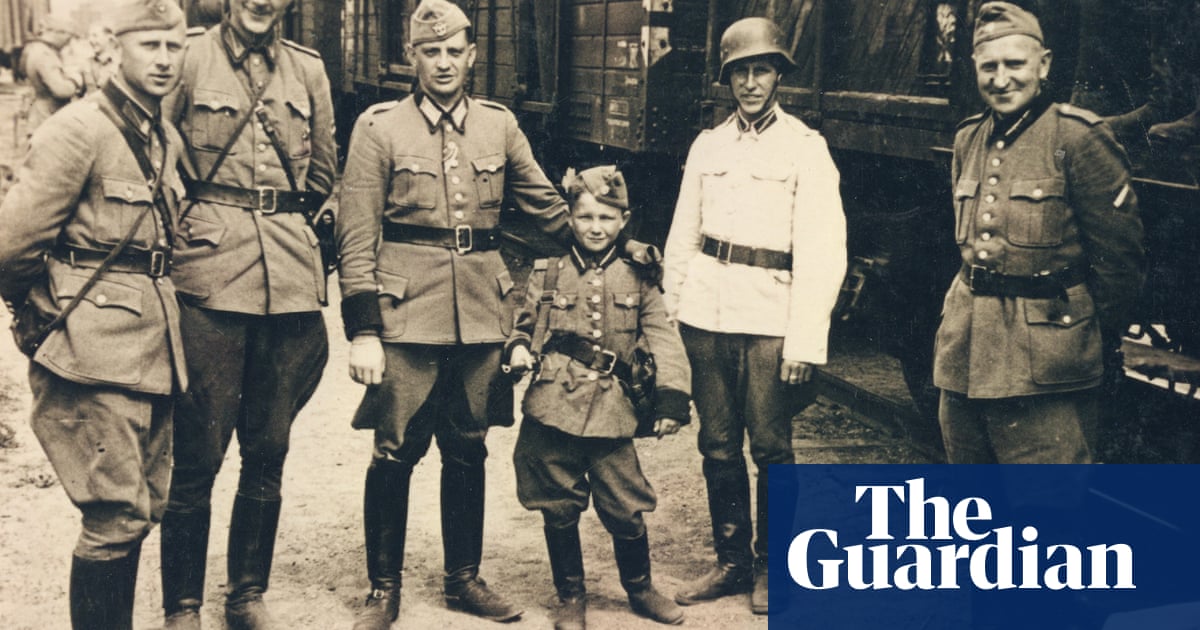
“There have been hard moments, many defeats, but the next day you go to training and then there’s another game, another chance,” Lionel Messi said. “Not this time; this time it’s not coming back.” And that was when reality dropped: this is it, it’s over.
There will be more moments like that in the coming months, little reminders, pangs of loss. That will include on Sunday against Real Sociedad, the first time Barcelona begin a season without him since 2005. They did not even get to say goodbye. His last game, his last goal, number 672, came in front of barely 200 people.
After 18 months, 29,803 supporters will be allowed back into the Camp Nou but it will feel empty on Sunday and beyond. There will be Messi shirts, Messi chants, but no Messi. He will be everywhere but on the pitch. After 17 seasons, he has departed early, taking part of Spanish football with him. How do you calculate what that means, the void it leaves, his legacy? Twenty-one years he has been at the club, Charly Rexach signing a “contract” on a napkin because losing him would be something they would “regret for the rest of our lives”. There is regret now, too: it became his club, one he didn’t want to walk away from. Not this summer, anyway.
This is his life, Messi said. It is many others’ lives too, a generation of fans who haven’t known anything else and others who can hardly imagine it any more. When Messi got the goal that meant he had scored more times for a single team than anyone else ever, the assist was provided by Pedri González. The day Messi made his first-team debut in a friendly against Porto, Pedri hadn’t celebrated his first birthday.
For so long Messi was Barcelona, even with the talent alongside him: Xavi, Andrés Iniesta, Ronaldinho and the rest. “I’ve never seen a player like him and never will,” Pep Guardiola once said. There was a flash of fear when he last collected the Ballon d’Or and admitted time was running out, but this may be worse. Retirement, described as the first of a sportsperson’s two deaths, can at least be reached at the right moment the right way. This feels like something broke.
It can be overplayed, inconvenient truths conveniently airbrushed, but it did matter that he looked set to stay loyal to the last, remaining at the club he joined aged 13. Morality tales are a trap too easily fallen into, talk of purity best avoided, and there is a risk of laying it all on too thick. Yet you needn’t be a Barcelona supporter to see Messi in a Paris Saint-Germain shirt and for it to feel weird. Wrong, even. If only because of how long it has been, how deep the impression, the sense that he has always been here, always been the best.
On Sunday night, Barcelona played the pre-season Gamper Trophy against Juventus, on the day Messi tearfully announced his departure. In the 10th minute, the few fans there sang his name, a trend likely to continue. The day he announced his arrival was the Gamper Trophy against Juventus too. That night, Fabio Capello sidled over to Frank Rijkaard, the Barcelona manager, and asked him to loan them “that little devil”. That was 16 years ago, the devil fast becoming a deity, a superman.
Sure, there are debates, but there’s a case to be made for saying that Messi has been the best footballer around for almost 15 years. Not three or four, or even seven or eight: fifteen. In the beginning Johan Cruyff said he would probably win five, six or seven Ballon d’Ors, which seemed absurd then but not now. There are 10 years between his first and his most recent and that may soon be 12. Before winning it in 2009, he was twice on the podium. And it’s not just that he has been perhaps the best across 15 years but in each of those years, almost from the start of his career to its end.
Back then Ronaldinho introduced him as the kid who was “better than me”, which seemed impossible too but it happened. He has been Spain’s player of the year in eight of the past 13 years on these pages, despite – sorry about this – a tendency to seek less obvious candidates and new stories which is not limited to here. Even the handing of the award to Luis Suárez last year and Karim Benzema the year before carried an apologetic preface admitting: “Messi is still the best.”
Widely seen as the world’s finest footballer, perhaps ever, Messi may still be underrated, stupid though that sounds. He has had many victims, including himself. His “bad” seasons are mostly brilliant, the only man held to his standards. A question asked by the ESPN presenter Dan Thomas during one Ballon d’Or debate sticks in the mind: if this was his first season would you vote for him?
He has scored 672 goals and registered 306 assists at Barcelona, but then you know that, which is part of the problem: he made the ridiculous routine, no longer news. If Messi had done that, we’d hear about it endlessly, is the line when a less known player does something incredible. No, we wouldn’t, because it became normalised and soon repeated. “Messi is Maradona every day,” Jorge Valdano likes to say, and even Maradona wasn’t that. He has scored more than 20 league goals 13 seasons in a row. Testimony to effort as well as inspiration, the consistency is as absurd as the quality.
Only it’s not. Nor is what Messi did always quantifiable. A colleague likes to say that when the Argentinian retires, we may as well do the same, although it might finally liberate, no longer embarked upon an impossible mission to find adequate words, a recurring nightmare where you’re looking at dull, battered keys and thinking: so, now what? Asked about Messi after one game, Joaquín Sánchez just laughed: “I don’t even know what to say any more.” Guardiola once said: “Don’t try to explain Messi, don’t try to write about him, watch him.” It was good advice, or it would be if the beauty, the brilliance, didn’t bring joy and inspire too.
There is so much to see, even if you didn’t always believe it. It has not been about the numbers; it has been the moments, a highlights reel that could occupy the whole evening, a goals tape to take you into next week, and various phases of Messi, an evolution of excellence. You could list the best, most iconic images – that hat-trick in the clásico aged 19; the Maradona goal, the first he would dedicate to El Diego but not the last; Athletic Bilbao in the Cup final; the Bernabéu run, criminally lost amid all the noise surrounding that semi-final – but someone else would come up with four more and they wouldn’t be wrong.
In terms of technical perfection, there may be no display like the 5-0 against Madrid in which he didn’t score. Only, there are probably plenty. The point really is that they wouldn’t even need to name the goals or the iconography, shirt in hand at the north end of the Bernabéu, say. Some moments are personal, seemingly inconsequential but there to be clung to; everyone has their own, chosen from so many. There is the anticipation before every match, realised with ludicrous frequency and yet with the capacity to surprise intact.
There’s the touch, the ball treated gently. The vision, seeing the pass no one else can. Playing the pass everyone else can, but doing it so well it can’t be stopped. The way he doesn’t so much kick the ball as watch it dash alongside him like a faithful, enthusiastic puppy. Everything really. The shock, the silliness. The bloodyhelldidyouseethat? And we did, over and over. There is a sense of achievement that will grow with the years in just having been there the day that Messi did that, a desperation almost to be part of it in some tiny way.
Nor is it just us, the supporters. At the end of this year’s Copa del Rey final, one by one, Barcelona’s players lined up, queueing for a photo, not with the trophy but their captain. Which may just be the most eloquent comment of all. There have been neat words, lots of extraterrestrial talk and grand eulogy – Jorge Sampaoli saying that comparing any other player to him is like putting a normal cop alongside Batman stands out – but it’s those more spontaneous, speechless moments that best measure the impact, the significance, the superiority, the sense that this is his era which is coming to an end.
Think Guardiola cracking up with that nutmeg on James Milner. Samuel Eto’o’s head in his hands when Messi scored against Getafe. Or fans at the Benito Villamarín cheering him and chanting his name. The Betis fans, that is – as if honoured to be beaten by him, to have shared another stupidly good moment, even if they suffered it. In some way he belonged to all of them, not just Barcelona. For Real Oviedo fans, to take one not entirely random example, it is a source of regret, of having missed out on an entire epoch, that he never set foot in the Tartiere.
When Lionel Messi scored a late winner at the Metropolitano on the eve of winning his sixth Ballón d’Or, approaching the Atlético Madrid area like Luke Skywalker flying into the trenches on the Death Star, Diego Simeone followed the move from the touchline. Urging his players to stop Messi but knowing deep down that they couldn’t, he said that he had been gripped by a feeling of inevitability. “All you can do is applaud,” he said and so, like so many others before but too few since, he did.
Soon, there was silence and now as the fans return at last Messi will not. After all that was shared all the way across the country for so long, now he goes alone, leaving them all behind, without the ending his story should have had. “I wouldn’t have imagined my departure this way,” he said. “I would have liked it to be with people there, to have heard one last ovation, felt that affection, celebrated a goal together. I missed them over this year and a half and I go having not seen them. If I had imagined leaving it would have been with a full stadium, saying goodbye the right way.”












